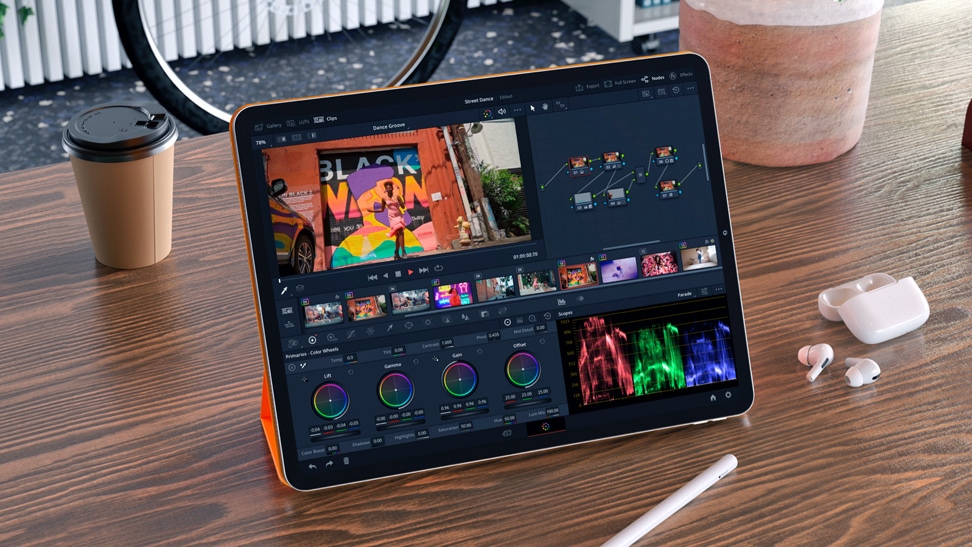A version of macOS for M2 iPad Pro rumored to come in 2023 could address criticism that the iPad is hobbled by the iPadOS software, not its hardware.

- What’s happening? A leaker claims Apple will give the iPad Pro desktop-class software support by creating a version of macOS for it.
- Why care? Because everyone and their brother has realized by now that the iPad Pro needs a more powerful operating system to fulfill its true potential.
- What to do? Be patient. We need more information to make sense of this rumor.
Is Apple testing a version of macOS for the iPad Pro?
The tantalizing rumor was started by leaker Majin Bu on Twitter.
His unnamed source claims Apple is working on macOS 14 code-named Mendocino, the next major update to the Mac’s operating system. At the same time, the company could be testing a simplified version of macOS specifically for the new iPad Pro powered by the latest Apple M2 chip. Read: How to right-click on the iPad
According with my source Apple would be testing a smaller version of macOS exclusively for the new iPad Pro M2!
"Mendocino" should be the codename for macOS 14. A simplified version should be planned for the M2. pic.twitter.com/f4RrainlZ1— Majin Bu (@MajinBuOfficial) October 20, 2022
The wording and poor English grammar of the post make it difficult to tell for sure whether the leaker may have mixed up something. The next major version of macOS will launch in the fall of 2023, and it’s going to be macOS 14.
It’s possible Majin Bu was misinformed or simply confused about sed future macOS-like features that could come to iPadOS next year with a native macOS version for the iPad Pro. Let’s consider yet another possibility.
I want you to imagine having the choice between two user interfaces in iPadOS 17.
On-the-fly switching between iPadOS and macOS UIs
One would be iPadOS for touch computing and the other would be macOS. Not the full operating system, just the user interface.
In that case, everyone would start with the familiar iPadOS interface, with pro users switching to a more powerful macOS one when using apps like DaVinci Resolve. This isn’t unheard of—after all, Samsung does a similar user interface change whenever a Galaxy smartphone is connected to its Dex accessory.
Bu’s tweet says “a smaller version of macOS” is in development “exclusively” for the new iPad Pro. In his mind, this explains the launch of DaVinci Resolve for iPadOS even though the app isn’t exclusive to the M2 chip and also works on the M1, according to a press release on the Blackmagic Design website.
Our take: Please let this be true
Although we wish someone more reliable like Mark Gurman shared this, Majin Bu isn’t exactly an unknown name in the Apple blogosphere.
A macOS-ification of the iPad Pro certainly feels inevitable. The iPad Pro line has the best hardware of all iPads that permits it to run desktop-class software. It isn’t even about a lack of pro iPad apps because you can run Photoshop, DaVinci Resolve and many other complex apps on the tablet.
But try moving items around in iPadOS and using multiple apps at once to make things happen and it immediately becomes obvious that iPadOS isn’t very well suited for those types of interactions. This year, Apple dropped the ball by creating a mess called Stage Manager which caused it to delay the iPadOS launch.
On the other hand, slowly but surely Apple’s been adding features to make iPadOS more on par with the Mac, to let you do many of the things you couldn’t before.
Ended up making a full beautiful faux webpage for my iPadOS 16 concepts last night. File is too big to post alone so I had to cut it up… check out my ideas for multitasking, the Home Screen, dock, and more… pic.twitter.com/l68denoWcK
— Parker Ortolani (@ParkerOrtolani) April 11, 2022
Things like drag and drop, managing files, connecting wireless keyboards, mice and trackpads, importing stuff from external storage devices, connecting Thunderbolt and USB-C peripherals and so on. But much more work needs to be done before iPadOS becomes as efficient for everyday tasks as macOS.
Apple has been trying to give the iPad proper software support ever since deciding to give the iPad its own operating system, iPadOS.
But progress has been slow, much slower than fans have anticipated. In that light, perhaps Apple figured it should stop trying to make iPadOS work like macOS and just create a parred-down version of macOS for the tablet.
We know the hardware isn’t a problem because the A12 Bionic was powerful enough to become the CPU for a special version of the Mac mini which had been used for the development of Apple silicon apps before ore first M1 Macs launched.